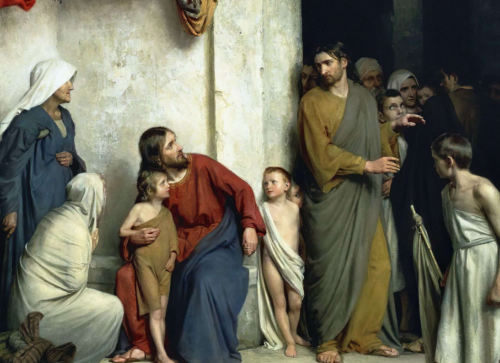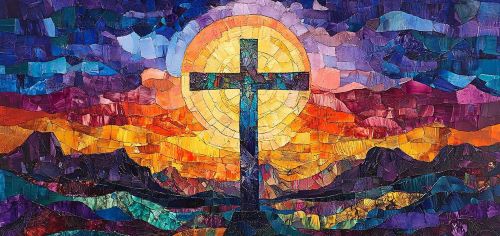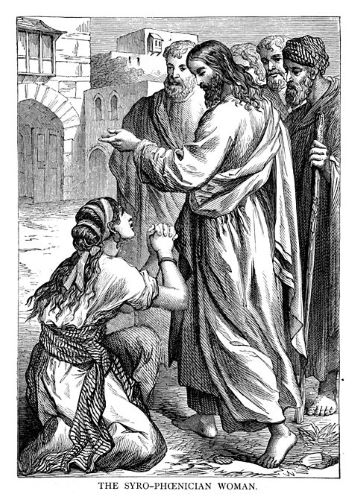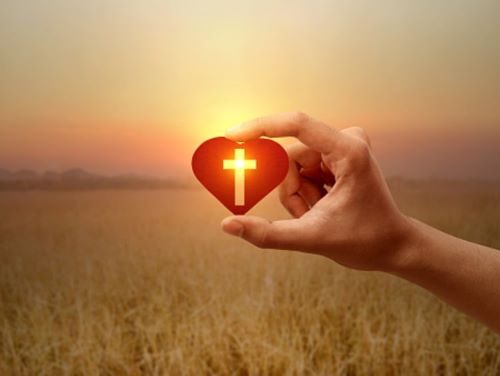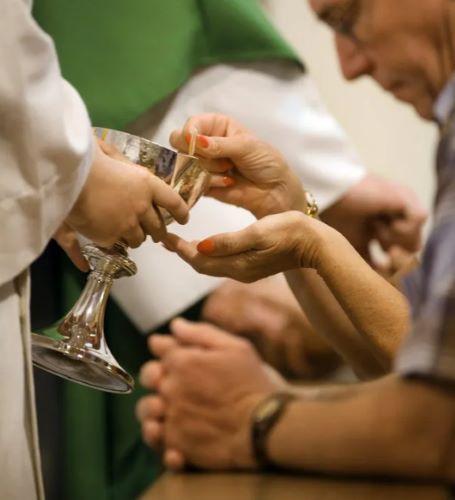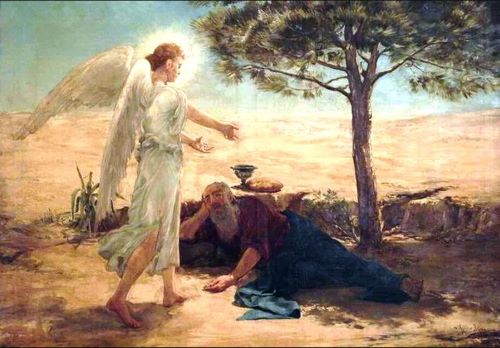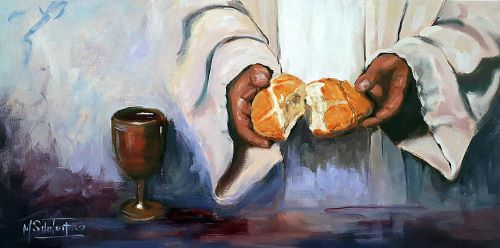In and Out of Time
Mr. Alex Quick
Year B
Isaiah 61:10-62:3
Psalm 147:13-21
Galatians 3:23-25; 4:4-7
John 1:1-18
“My heart tells of your word: ‘Seek my face,’ and your face, Lord, will I seek.” Amen.
In the beginning: The Word. / The Word with God. / God, the Word.
John’s Gospel starts with a drastically different mood than the other Gospels. Matthew opens with a genealogy. Mark presents Jesus to us at the start of his ministry. Luke, ever the detailed note taker, sets the whole scene, geopolitics and all.
But when John introduces us to Jesus, it is in what feels like the moments waking from a fever dream. It is dark, it is disorienting; moments of clarity give way to moments of confusion, but somehow in the midst of it all, we have a sense that God might even be present.
The Word is in the beginning with God / Through it everything came / and without it nothing was / In the Word, life / in life, the light of humanity / and the light shines through the dark / the dark did not overtake it.
The other three gospels go to great lengths to plant Jesus firmly within the history of his people, and his life within the life of Israel. John seems disinterested in this exercise. Rather, he places Jesus – the word – as the same word that moves over the earth at creation, the same voice that says “Light”. Creation itself is the heritage of Christ; all of humanity is his common life.
The only and true light / it came to the world / and shone on everyone. / It was in the world / the world made by it / but the world did not recognize it. / It came to its home / but its own did not welcome it.
This common life is another way in which this reading stands out. The only named persons are Jesus and John the Baptist. The rest of humanity is grouped together as “the world” and “everyone.” By extension, everywhere is the home of the Word, the home of God; and all people’s are God’s people. Humanity, however, is not doing so hot in embracing or even recognizing this reality. All of human history at this point; the nations and empires that rise and fall, their philosophies, their religions, all of it, is summarized by two words: darkness and rejection.
Enter John the Baptist. John the Baptist’s ministry would seem counterintuitive by most of today’s standards – aside, of course, from being in the wilderness, eating locusts and dressing in camel’s hair. We hear from the reading that John’s ministry was prophetic; and his call was to call people’s attention back to that Light that was with us in the beginning; to become aware of it in our presence. And, through his ministries of repentance and baptism, calling the people to renewed relationships with it.
This leads to John the Baptist’s other message, the impending arrival of Jesus, the anointed one; and it seems only natural that it does. As individuals, we can be called to be attentive, but the darkness still remains; and the order itself needs to be renewed
To all who have received the light / he gave power to become children of God / and all who have confidence in his name / are not born of blood, or of the flesh, or of the human will / but of God. / The word took flesh / and among us lived. / We have seen its radiance. / The radiance of the only Son of the Father.
This is John’s Christmas story. The word has come and “pitched its tent” among us. The rest is commentary. The word of God, the Wisdom of God appears in order for things to be set right, for the darkness to be enlightened. But what does this mean?
We get a glimpse of this in the reading, when John tells us that we will be born of God through belief in the word. Our reading from Galatians fleshes this out in more detail. As we are “Born of the spirit of his son” we become heirs of God, through Christ; that is, we become children. There is a radical flattening of hierarchy; a radical erasure of divisions. No wonder why John does not bother to delineate the peoples of the world in this opening of his Gospel; he is writing on the other side of the resurrection, where these structures are but a memory.
But to what ends? The compilers of the lectionary have done us a disservice with today’s reading from Isaiah, as the verses coming just before our reading presents a laundry list of things that “the anointed one” seeks to accomplish:
- Bring good news to the oppressed
- Bind the broken hearted
- Proclaim liberty to the captives / release prisoners
- Proclaim a year of the Lord’s favor, and a day of vindication
- Comfort those who mourn
In the following verses, leading into our reading, we learn that this mandate is for all of the people of Judah, not only the priestly or governing classes. While this is a message from Isaiah, it could easily be a manifesto for living in the Light from John the Baptist or Jesus himself.
For a holiday celebrating the birth of a baby – it is still Christmas – this all seems awfully heady. It was probably an act of mercy that Linus comforts Charlie Brown’s Christmas Existential Crisis with a reading from Luke; “I am bringing you good news of Great joy, a savior is born to you this day.” That the Word that spoke “Let there be Light” is now asleep in Bethlehem may have been a bit much for Charlie Brown.
But it is this Jesus that John is interested in introducing us to: Christ, the King of the Cosmos. Or Christ the King Beyond the Cosmos. Matthew, Mark, and Luke all tie Jesus to a particular place and time. John moves Jesus beyond the confines of space and time. Christ the Cosmic King is now, in the present tense, and is now eternally.
In the beginning is the Word, the Word is with God and the Word is God. All things come into being through him, and without him, not one thing exists. What comes into being in him is life, and the life is the light of all people. The light shines in the darkness, and the darkness does not overcome it.
In focusing on the Cosmic Christ, John’s Gospel is inviting us into the Christmas story and to keep living the reality of Christmas. We are invited to see ourselves as John the Baptist; to be sent as a witness to the light, to name it, and to make the Glory of God known. We are invited to see Christ, the indwelling creator, at work in the world through the Church and the Sacraments, and in those we meet along the way. John is connecting our own lives and our own faith to the creation of all things; bringing us from the very beginning into the expansive inner life of the Most Holy Trinity.
And I wonder, Charlie Brown, what could be a more exciting Christmas story than that.
“My heart tells of your word: ‘Seek my face,’ and your face, Lord, will I seek.” Amen.

